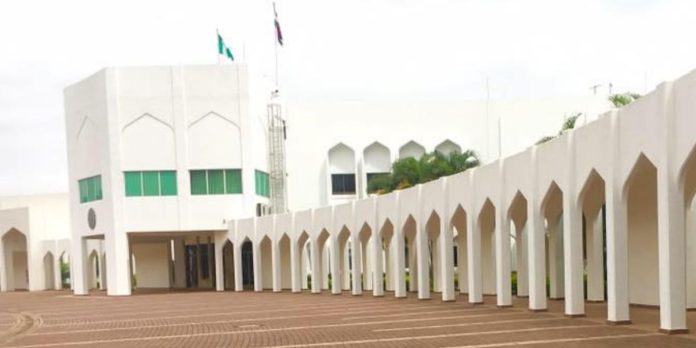…flays budget spending on fuel, AGO, generators
Despite the public outcry against the planned expenditure of N10 billion for the installation of solar power in Aso Rock to boost electricity supply, members of the Organized Private Sector (OPS) have defended the move, saying that it’s a cost-effective solution to reducing costs of governance and the billions of naira spending on buying fuel and diesel to powered generators.
The private sector group, comprising members of the Manufacturers Association of Nigeria (MAN), Nigerian Association of Chambers of Commerce, Industries, Mines and Agriculture (NACCIMA), Lagos Chamber of Commerce and Industry (LCCI), Nigeria Employers Consultative Association (NECA), the Nigerian Association of Small and Medium Enterprises (NASME), Nigerian Association of Small Scale Industrialists (NASSI), and Centre for the Promotion of Private Enterprise (CPPE), defended the Aso Villa solar power installation project, saying that N10 billion is not bogus, which they said is not up to $50 million.
Speaking in an interview with Saturday Telegraph, the Director/Chief Executive Officer (CEO) of the Centre for the Promotion of Private Enterprise (CPPE), Dr. Muda Yusuf, explained that government investing in renewable energy does not stop the investments in the country’s power sector, saying that solar power is a better alternative and a reliable source of power supply.
Speaking on the insinuation that the government no longer beliefs in the country’s electricity supply, he said: “No, it would be wrong to jump to such conclusion because as I am talking to you now, there is a generator backup in the villa. There are generators everywhere in all government houses. Using solar power as a backup will attract lesser cost than electricity supply that is not there. So, of course, it is an alternative source of energy.”
Dr. Yusuf pointed out that “The solar power project for Aso Rock is not bogus as critics are saying. I support the initiative because all of us have been clamouring for reduction in cost of operations and governance, so this is one step to it.
“It doesn’t mean they don’t have confidence in the country’s power sector, but we are not yet there realistically. What they budget for diesel and fuel for generators in Aso Rock is bogus, so this is a better alternative source of power, it would help to reduce energy cost in short and long terms.”
On fixing the country’s power sector, the CPPE boss said, “Yes of course, power is very critical to development any day. But that we are investing in the country’s power sector to fix our power supply does not mean that you should throw away your generator or you should not have backup like renewable energy sources.”
While reacting to government’s mulling plan to ban foreign solar panels into the country, the renowned economist said, “The minister said that they are proposing to ban the importation of solar panels, but it has not become the policy of the government. It was just like flying a kite, which is why some of us quickly spoke against it. If you want to encourage local production, encourage them so that they can compete with imported ones.
He added, “On installing solar power in Aso Rock, the whole idea is to cut cost. There is no way it would not be cheaper to use solar power instead of burning diesel and fuel. “So for me, it’s a cost effective energy solution even for the villa. Now, if you want to encourage local production based on what the minister was saying, they can decide to buy it directly from local manufacturers of solar panels. “So the N10 billion earmarked for solar power installation in Aso Rock Villa can be used to support local production if the presidency wants to buy local solar power.”















